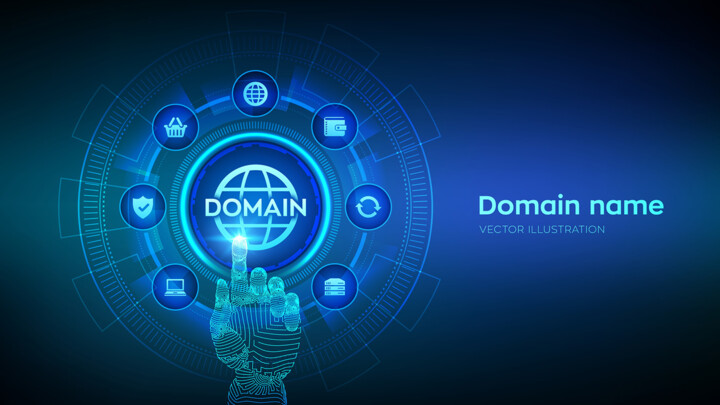Economic implications of DNS: Understanding its role in the digital economy
Join Simone Catania from InterNetX as he unveils the crucial role of the Domain Name System (DNS) infrastructure in shaping the digital economy, highlighting its critical impact on operational efficiency, security, and global economic stability.

©Iurii Motov | istockphoto.com
The Domain Name System (DNS) is much more than a technical Internet framework: It has evolved into a critical component that supports the digital economy, affecting everything from operational efficiency to global economic stability. As more and more businesses rely on the Internet, the performance and management of the DNS have emerged as fundamental factors that can impact an organization’s operational capabilities, security posture, and financial success.
This article aims to delve into the intricate economic implications of DNS, emphasizing the necessity of robust DNS performance and the imperative for proficient DNS management within modern digital ecosystems.
DNS and its economic impact
DNS plays a pivotal role in today’s online-centric society and the growth of the digital economy. Its importance is undeniable, as virtually every email sent, website visited, or online service depends on this system. Its smooth operation and security are essential for the reliability and integrity of Internet services worldwide.
Apart from its technical scope, DNS drives economic growth and spurs innovation. DNS services enhance user experience and facilitate online transactions by ensuring users are directed to the correct website. This, in turn, boosts consumer confidence in online shopping and digital platforms, driving sales, and revenue for businesses operating online.
DNS fuels business continuity and digital economic growth
The economic lifecycle supported by DNS encompasses direct online sales, advertising, market intelligence, and many service-based industries that rely on the Internet to reach their customers.
Recent statistics showcase the significance of DNS to global business operations and its growing impact. Overall, 92% of organizations report that their website is critical to business continuity and customer fulfillment, while only 8% declared they could conduct business without their website running. Moreover, reports indicate a significant surge in the market size for DNS services. The projected size of the global DNS services market is set to expand from USD 500.7 million in 2023 to USD 1,698.0 million by 2030, exhibiting a Compound Annual Growth Rate (CAGR) of 19.1%.
The numbers reveal that, as businesses strive to strengthen their online presence, their reliance on DNS services amplifies, highlighting their importance in sustaining economic growth in the digital age.
Boosting business outcomes with enhanced DNS performance
The linkage between DNS performance and business success is underscored by DNS’s foundational role in enabling access to online services—a direct influencer of user experience, website traffic, and, ultimately, revenue.
High-performance DNS systems ensure faster website load times, reduce bounce rates, and improve overall service availability, directly contributing to enhanced customer satisfaction and loyalty. Several case studies reinforce this relationship. For example, businesses that migrated to cloud-based DNS providers reported significant improvements in website loading times, directly correlating with increased page views and conversion rates. This demonstrates how DNS directly influences your customers’ experience, making it a crucial aspect of your business strategy.
Technical advancements play a pivotal role in DNS efficiency. One such advancement is the implementation of DNS Security Extensions (DNSSEC). DNSSEC is a set of security extensions that add a layer of protection to the DNS. It not only counteracts DNS spoofing attacks, a type of cyberattack where an attacker masquerades as a legitimate website, thereby protecting brand integrity, but also streamlines the resolution process in specific configurations. Moreover, geo-DNS strategies, augmented by the use of Anycast, enable businesses to direct users to the nearest server location, significantly reducing latency and enhancing user experiences. By leveraging Anycast, a single IP address is advertised from multiple server locations, ensuring that DNS queries are automatically routed to the closest node, thus improving redundancy and accelerating response times.
Companies can leverage DNS performance as a strategic asset through these technical enhancements to drive better business outcomes.
The cost of DNS outages
When the DNS fails, the Internet’s ‘phonebook’ becomes unavailable, making it impossible for customers to reach websites and services. This leads to direct revenue loss, damage to brand reputation and operational setbacks. Therefore, DNS outages are not merely technical inconveniences but significant disruptions that can lead to substantial economic losses for businesses.
Case studies, such as the 2016 Dyn DDoS cyberattack, underscore the vulnerability of even well-established infrastructures, where prominent websites, including Twitter, Netflix, and PayPal, faced accessibility issues, resulting in millions of dollars in losses within just a few hours. Moreover, the August 2020 outage at CenturyLink, which led to an estimated $700 million loss in economic output, showcases the broader economic ramifications. The 2021 Facebook Outage on 4 October affected Facebook and its subsidiaries, causing a global shutdown for approximately six hours. The outage disrupted user access and internal communications, resulting in significant financial losses, including an estimated $60 million in lost advertising revenue and a noticeable drop in Facebook’s stock value.
These incidents illustrate the critical importance of robust DNS management and the need for comprehensive risk mitigation strategies to shield against such potentially devastating impacts. Establishing redundant DNS capabilities and monitoring services is crucial to minimizing the risks associated with DNS outages.
A market overview of DNS services
The market for DNS services has evolved into a dynamic and critical sector within the digital economy, particularly for enterprise-level solutions that ensure connectivity, security, and efficient Internet traffic management. With the digital transformation accelerating across industries, businesses rely on robust DNS services to support their online operations, from maintaining website availability to securing data transfers. This reliance has spurred growth in the DNS service market, with enterprises seeking traditional DNS hosting and management and advanced features such as DNS Security Extensions (DNSSEC), DDoS protection, domain protection, and geo-DNS services.
Trends in DNS service adoption among businesses reflect a growing awareness of cybersecurity threats and the crucial role of DNS in safeguarding against such risks. Consequently, DNS solutions are being prioritized within IT strategies, moving beyond basic functionality to become a core component of enterprise security postures, among others, to fight against DNS abuse, DNS attacks, and domain abuse. As enterprises continue to digitalize, the expectation for highly available, secure, and resilient DNS services amplifies, pushing DNS providers to innovate and offer more sophisticated, tailored solutions that align with diverse business needs.
InterNetX’s role and expertise in DNS management
InterNetX, a leading provider of domain and DNS services, has positioned itself as a critical player in DNS and domain management. With over 25 years of experience, InterNetX offers a range of DNS services, including domain registration, DNS hosting, and advanced DNS features through its domain management platform, AutoDNS. This platform is designed to simplify the complexities of DNS management, allowing businesses to find, register, and professionally manage their domains efficiently. InterNetX underscores its dedication to reliability and security in DNS services, implementing robust infrastructure and adopting industry best practices to ensure high availability and protection against DNS attacks.
The DNS landscape is not only pivotal in technological infrastructure but also carries significant legal implications, especially in the light of the NIS2 Directive, which classifies DNS operators as critical infrastructure, thus imposing rigorous regulatory challenges. These challenges encompass a spectrum of new efforts required to comply with the stringent legal requirements now associated with operating vital Internet infrastructure. By delegating DNS management to a specialized third party like InterNetX, businesses can circumvent these potential legal hurdles, as InterNetX is adept at fulfilling all legal requirements on behalf of its clients, ensuring compliance with current regulations like NIS2.
Several case studies and testimonials from InterNetX customers, such as FlixBus, CEWE, Jimdo, and the Nuremberg Airport, showcase the positive impact of partnering with InterNetX for DNS management. These businesses highlight InterNetX’s ability to provide professional and reliable domain management solutions critical for their online presence and international growth. FlixBus, for example, praises AutoDNS for offering a perfect domain platform that keeps its domains well-organized and easily accessible across new markets. CEWE, a leading photo service and online print provider in Europe, credits InterNetX for its reliable partnership and ideal solution to protect the domains of its brands in over 20 countries, emphasizing the crucial role of efficient DNS management in securing a robust online footprint and supporting business expansion in the increasingly interconnected digital economy.
The central pillar of DNS in the digital economy
In the vast and interconnected landscape of the digital economy, the DNS emerges as a foundational component, facilitating the seamless functioning of online services and significantly influencing business success and growth. The critical role of DNS goes beyond simple domain name resolution; it is instrumental in ensuring website accessibility, security, and, ultimately, the user experience—elements closely tied to customer satisfaction and business revenue.
Simone Catania currently serves InterNetX as Global Content and Communications Manager. He is responsible for the content across InterNetX’s blog and other channels and helps users understand the underpinning mechanisms behind the Internet. Simone is an ICANN fellow and member of EURALO and UASG.
Please note: The opinions expressed in Industry Insights published by dotmagazine are the author’s or interview partner’s own and do not necessarily reflect the view of the publisher, eco – Association of the Internet Industry.





